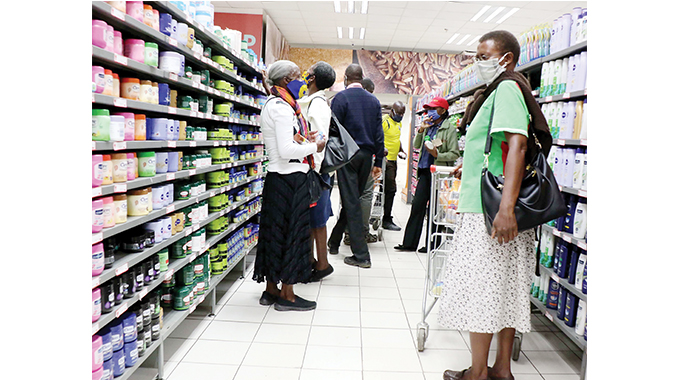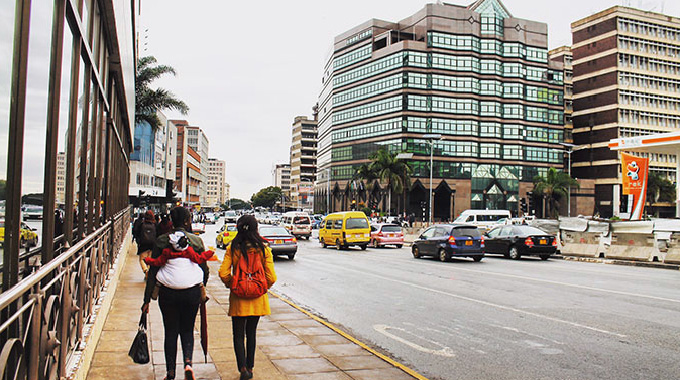Implications of the national lockdown

Cynthia Mukamuri
The national lockdown due to the Covid-19 pandemic has had a great impact on the country.
According to ZimVAC, 5,5 million people in the rural areas and 3,9 people in urban areas are food insecure. The Covid-19 pandemic came at a time when the national economy was already struggling.
Women are the most affected by scarcity of food because they are responsible for the general welfare of the household. Because of the care role of women and also the fact that there are many female headed households, the woman is the one affected the most.
Most people were unable to stock up on food since the lockdown began as they need to work at their vending stalls regularly to meet daily needs. Staying indoors for long will further worsen the already volatile situation. The World Food Programme (WFP) has already warned that half the population will be food insecure.
People are taking advantage of the lockdown as well as the liberalisation of foreign exchange market to sell basic goods in US dollar terms. Among those that still transact in the local currency are big supermarkets but the challenge is that of access because of long queues.
The pressure in these queues defeats the purpose of social distancing, putting people at risk especially women who have the care burden of providing for their children. This pressure in queues is creating a platform for thieving to flourish from unsuspecting people. This is also exacerbated by the fact that people cannot afford to buy in bulk hence they frequent the shops.
Mealie-meal shortage is another challenge which leads to crowded queues yet social distancing is being reiterated as close contact spreads the virus. The Government is offering ZW$200 (US$5) per head per month to those identified to be in need.
The poverty datum line is US$1,90 per day hence this relief is not enough to cater for family needs because of the skyrocketing prices of basic goods. As much as the Government is commended for such assistance there is need to review this amount for a meaningful impact.
SMEs are the drivers of growth in Zimbabwe. Almost 95 percent of Zimbabweans are in the informal sector and women constitute 54 percent of these. Given the high levels of unemployment in Zimbabwe, most people rely on retailing and vending and hence live from hand to mouth.
A day without hawking and selling means they cannot feed their families, making this shutdown a great impediment and another source of food deficiency.
For most people, it is now business as usual even under lockdown regulations because staying at home is a luxury they cannot afford. Vending continues to take place in the early hours of the morning, some even continue the whole day and only disperse when the police and army is patrolling. In other places, informal businesses start after 6pm when the police are no longer in operation.
Some police officers use the opportunity to further demand bribes from the already stricken citizens caught without operating licences. Of concern is the rejuvenation of businesses after lockdown as most have depleted their capital to feed their families and may not have capital to start over.
How do people wash their hands constantly when there are running water shortages? Access to clean water has been a challenge in the country with most citizens digging up wells and boreholes.
Access to water in these boreholes is a challenge because of the distance people travel to access the precious liquid. Tap water rationing has been the order of the day in some cities yet the water has been cited as unclean for drinking. Bulawayo is going for six days weekly without tap water.
The acute water shortages make regular hand washing almost impossible. Women are the ones with the primary role of fetching water. Yet crowding around water wells makes social distancing an elusive goal.
There are no hand sanitizers there, people are handling the same borehole knobs without protection and without hand sanitizers to curb the spread of the disease putting women and girls at risk.
The pandemic comes at a time when hospitals are generally ill equipped to deal with it. Health workers are constantly complaining because of lack of Personal Protective Equipment (PPE) and running water. The lack of protective gear for frontline workers poses a threat to their health as well. It has also rendered non-Covid related cases to be neglected. Access to medical services for non-Covid related illnesses has become a challenge since most of the scarce resources are channeled to the pandemic. There have been reports of shortages of family planning, maternal health services, Anti Retroviral drugs for those on ART among others.
Infection control at household level is a challenge because of the required procedures in providing care to the infected which may pose a risk to other members of the family if not handled with care. Home based care for suspected cases leaves women and girls more vulnerable are they are considered the primary care givers. Equipping family care givers with information and PPE to curb high risk on home based care approaches is important.
Globally, gender based violence cases are on the rise, and Zimbabwe is no exception. Confinement to the home seems to have increased tensions threating the family fabric. The shortage of basic commodities is inciting violence in the homes. Women are falling prey to gender based violence rendering their homes unsafe for inhabitance. Suicidal cases have been reported especially those of women who are failing to cope with the reality of the family burdens.
Sexual exploitation has been rampant, idle minds during this lockdown have exposed women and girls to sexual abuse. Other challenges of this lockdown are child marriages which are being propelled by poverty.
Reported cases of child sexual exploitation by family members are also a cause for concern.
Prices of sanitary wear increased with the hike of the prices of other goods. Since the economy is performing poorly, the lockdown makes it difficult for a family to afford sanitary pads at the expense of basic necessities, hence leaving the girl child’s needs unattended to. As much as the Covid-19 pandemic attracts lots of attention, there is also need to prioritise family planning, anti-retroviral drugs, maternal care and other non-Covid cases during this national lockdown.
Social media has been awash with experiences and videos of people who have been injured for non-compliance to the lockdown regulations. There is evidence of heavy-handedness among some police officers deployed to help enforce lockdown. This is because the citizens who survive from hand to mouth cannot stay in their homes. For staying indoors for long is a luxury they cannot seem to afford as it puts at risk the subsistence of their households. As much as non-compliance should not be condoned, arresting, beating up and burning fresh vegetables in a highly food insecure nation is discouraged.
It’s a difficult time for everyone; the Government cannot do it alone. We all have a role to play at the end of the day. The haves to assist the have-nots, the spirit of Ubuntu needs to be in place.











Comments